Welcome to The Learning Curve, a weekly newsletter to share our understandings, joys, and learnings through personal narratives. Our writers span many generations, cultures, identities, and ethnicities.
We’d like to welcome our recent new subscribers! If you haven’t subscribed yet, please join us!
Today’s letter is a collaboration between Molly and Mary Alexander (MA) Satterfield, as a response and contemplation on the abduction and murder of Memphis resident Eliza Fletcher. Liza’s impression on all, those who knew her and those who did not, is powerful and enduring.
We are grieving with all of Memphis and with every woman who has been impacted by this tragedy.
The last ten days in Memphis have been unlike anything I (Molly) have experienced.
Early on Friday, September 2, the start of Labor Day, I was playing tennis with some of my closest friends and I heard about Liza Fletcher’s abduction. One of my friends had taught her and was visibly shaken.
As my friend described Liza, an image arose in my mind: young, blonde, athletic, a mother with small children, a woman who is beloved in her community. The degree to which her situation hit close to home, literally and figuratively, immediately felt all-consuming. My stomach clenched, and I felt terrified about what Liza may be experiencing at that very moment.
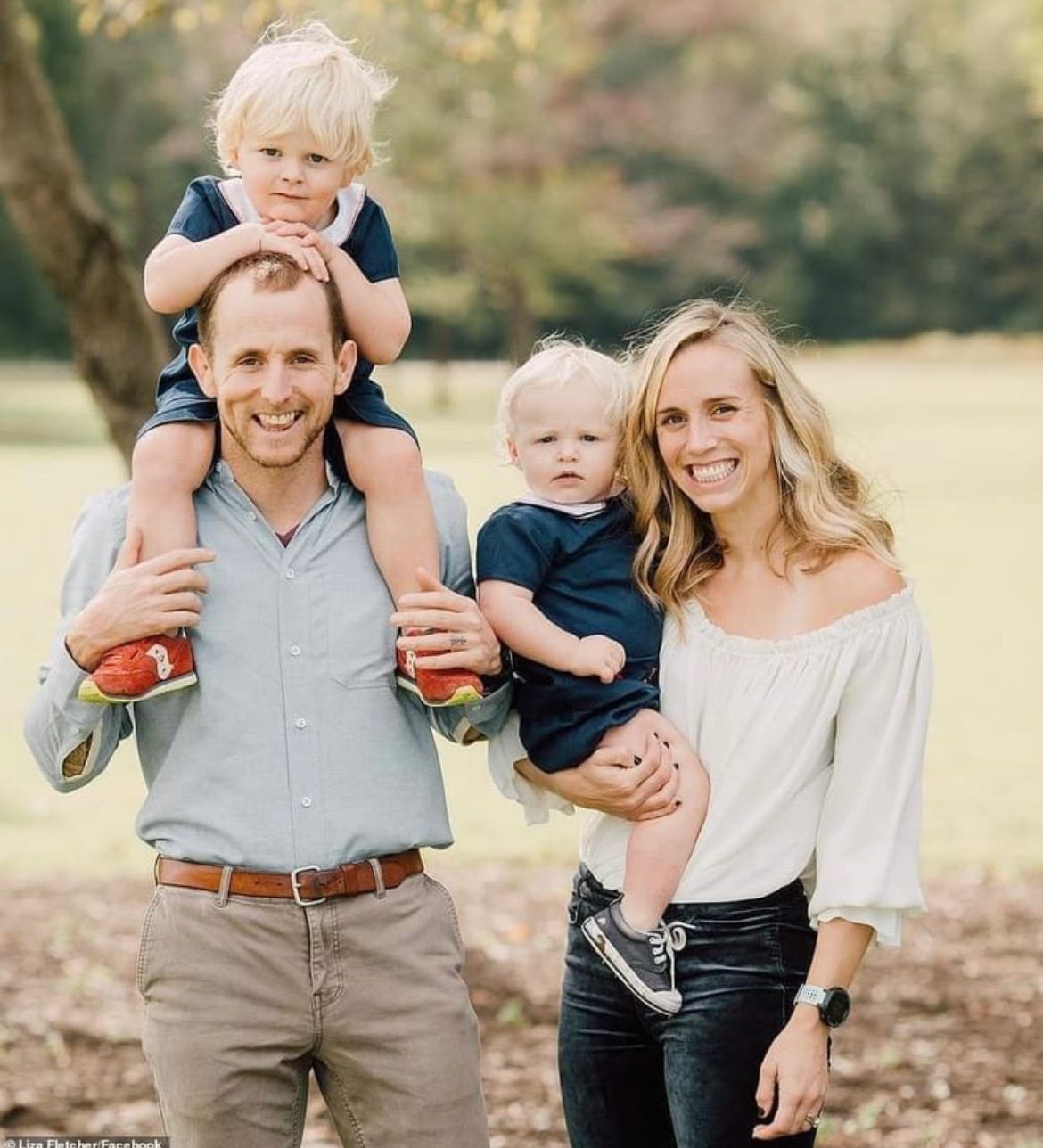
I’m a transplant to Memphis, and while I (Molly) didn’t know Liza personally, I am close to many people in her world. The Memphis community is small and Southern connectedness is real.
What I quickly learned that Friday morning, from those who knew her best, was that Liza was incredibly strong—tougher than most. An incredible athlete, strong in her faith, friendships, and family; and without knowing her personally, I still knew that Liza wasn’t going to give up easily. We all believed she was fighting, that she could escape, somehow, some way.
I (Molly) also knew that Liza could have been any of us—out for a walk, a run, a workout—at any time. Not only did Liza’s abduction make our world smaller, but it also created a world full of fear for every woman I know in Memphis.
All throughout the long weekend, we checked the news constantly, trying desperately to find news about her. The entire community—and friends and family outside the state—held faith that Liza would be found safe.
Things felt sad and desperate.
While we waited for Liza’s return, comments filled the internet:
She shouldn't have been out that early.
She shouldn’t have been alone.
She shouldn't have been wearing that.
These comments left me (MA) enraged. Liza should have been able to go on a run and return home to her two precious boys, no matter the circumstances.
And when they found Liza on Monday evening, a tidal wave of anger, deep sadness, and grief washed over every woman I (Molly) know. Here we all are—left searching for answers, questioning humanity and broken familial systems, feeling terrified and somber.
Our hearts are heavy, angry, and frustrated.
Women should be able to run alone at any time, day or night. We shouldn’t have to worry about where we go, whom we are with, how much safety gear we have, or whether or not we can listen to music or a podcast.
But we do have to worry about these things.
Men have no idea how many worries go through our minds with simple tasks, like when we approach our car, walk through a parking lot, are outside alone (day or night), or answer the front door when we are the only ones at home.
I (MA) am so angry that my daughter has to grow up in a world like this. I am so sad I won’t ever feel comfortable for her to go play outside on her own.
And just when we thought we could begin to grieve Liza, celebrate her life, and find a way to move forward together, last Wednesday night—two nights after her body had been found—a nineteen-year-old man spent his evening driving all over Memphis, randomly shooting and carjacking people, killing four people and wounding three.
This horrific week in Memphis has many layers—questions about safety, gender norms, forms of self care—but also includes deeper wounds that the Memphis community has to find a way to confront and heal: racial divisions from generations back; how crimes are handled differently dependent upon the person; class, money and power and lack thereof.
Eventually, we will delve deeper, but this week, we ask ourselves: Where do we turn next? How do we move forward and through this sometimes-fearful new world?
Unfortunately, I (MA) do not know the answer. However, I was filled with hope for the future when over 2,000 women and men gathered in Memphis last week (with thousands of others running all across the globe, in Liza’s name), one week from that fateful Friday morning, to finish Liza’s run.
Liza’s light has touched us all. Because of Liza, we have hope for the future that there will be change.
Things have to change and they have to change for her.
As hard as it is for me (MA) to grasp, my life is out of my control. I trust that God has already written my story. I must stay present in each moment. I cannot let my mind wander to the “what if” thoughts that lead me to a dark place in my mind.
As someone who has always struggled with anxiety, the past ten days have rattled me like never before. Here are the thoughts that I have clung to during these extremely dark days.
Trust God.
Stay Present.
Stay Vigilant.
Resources for Those who are Struggling with Grief and Anxiety
“How to Cope with Traumatic Events” via Help Guide
“Any traumatic event—from a personal tragedy to a global crisis—can take an emotional toll and cause traumatic stress. But there are ways to regain control of your life.”
“What Women Are Doing to Feel Safe While They Run” via Shape
“Over a third of female runners feel afraid while exercising alone—so they're taking matters into their own hands.”
“Personal Safety Tips for Women” via ABC
“Women need not view themselves as helpless victims. ABC NEWS’ Healthy Woman asked crime and safety specialists the most effective precautions a woman can take when walking alone to keep herself from becoming a statistic.”
“Why Mister Rogers’ Plea To ‘Look For The Helpers’ Still Resonates Today” via HuffPost
“After a tragedy, it’s not unusual to see the face of children’s TV icon Mister Rogers pop into your social media feed. Fred Rogers, the host of the long-running show Mister Rogers’ Neighborhood, remains known, among many things, for a heartwarming quote reminding people to seek out the good, or ‘the helpers,’ after something bad happens.”
“5 Effective Tools to Stop Living in Fear and Worry” via Course Correction Coaching
“Living in fear is overwhelming. It makes you feel out of control and feeds your worries and anxiety. But it’s important that you know that, no matter what’s going on in your life and the world, you don’t have to live in fear.”
With love,
Molly Coyne & Mary Alexander Satterfield
P.S. How are you processing grief and sadness in light of what has happened to Liza?





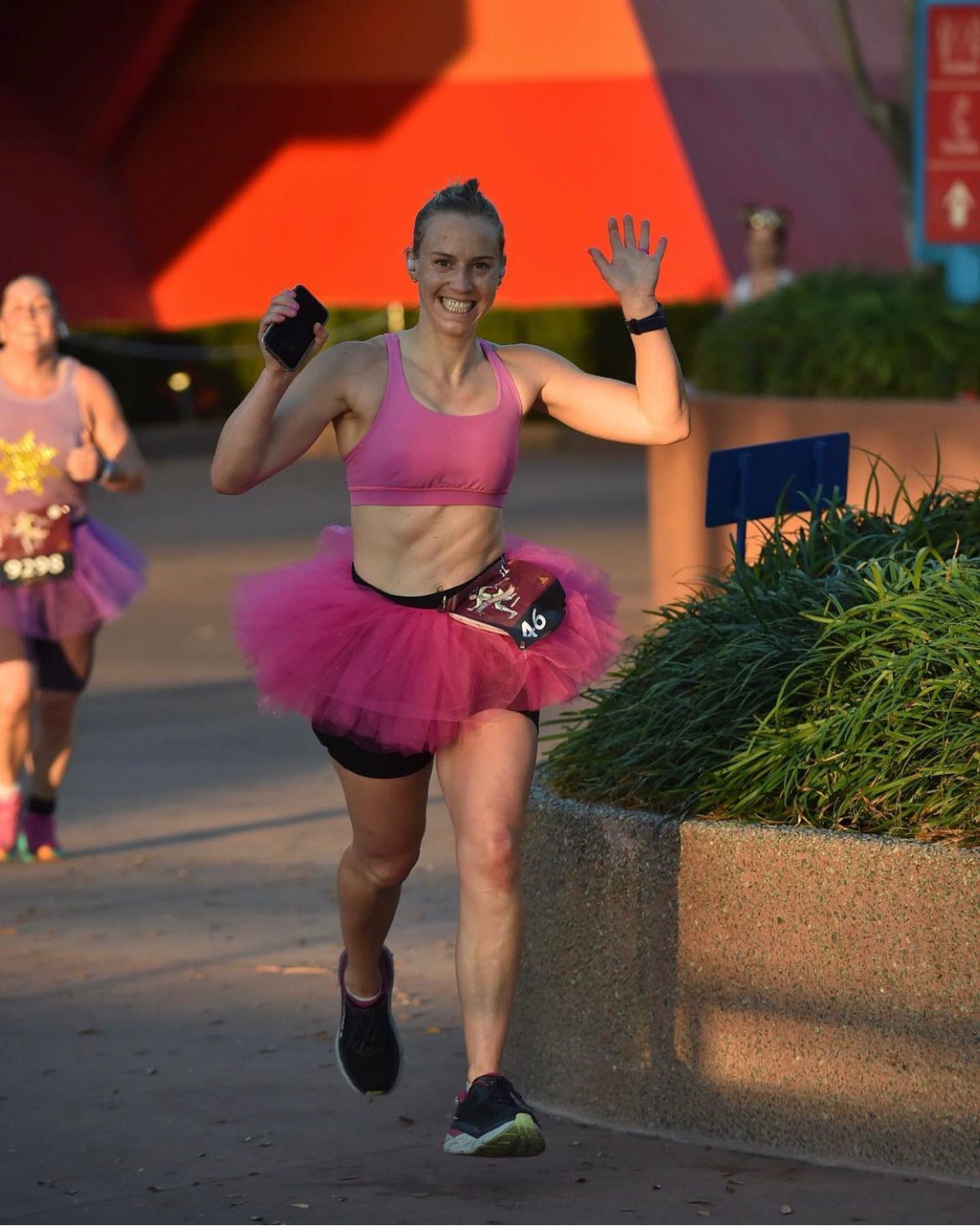
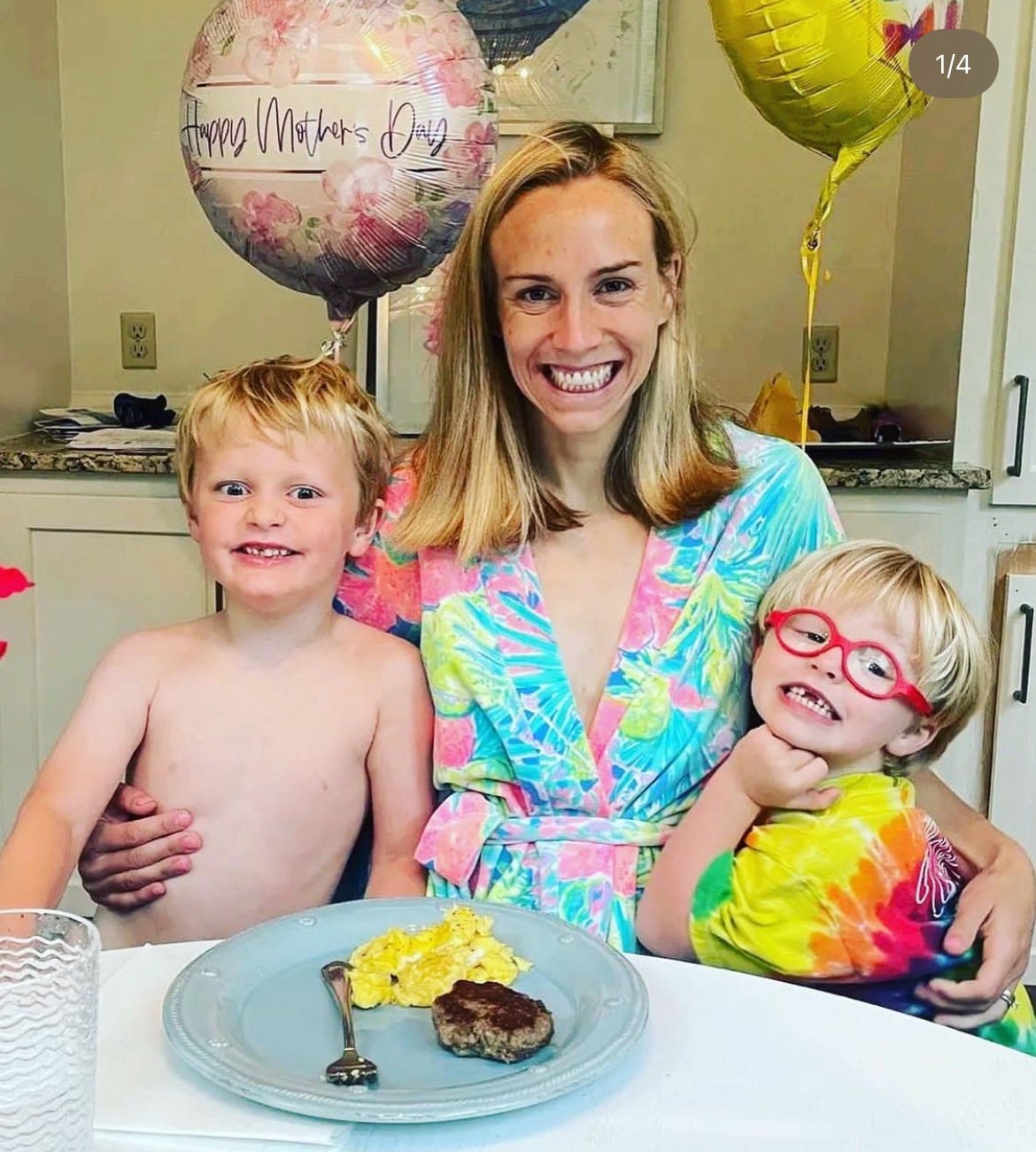
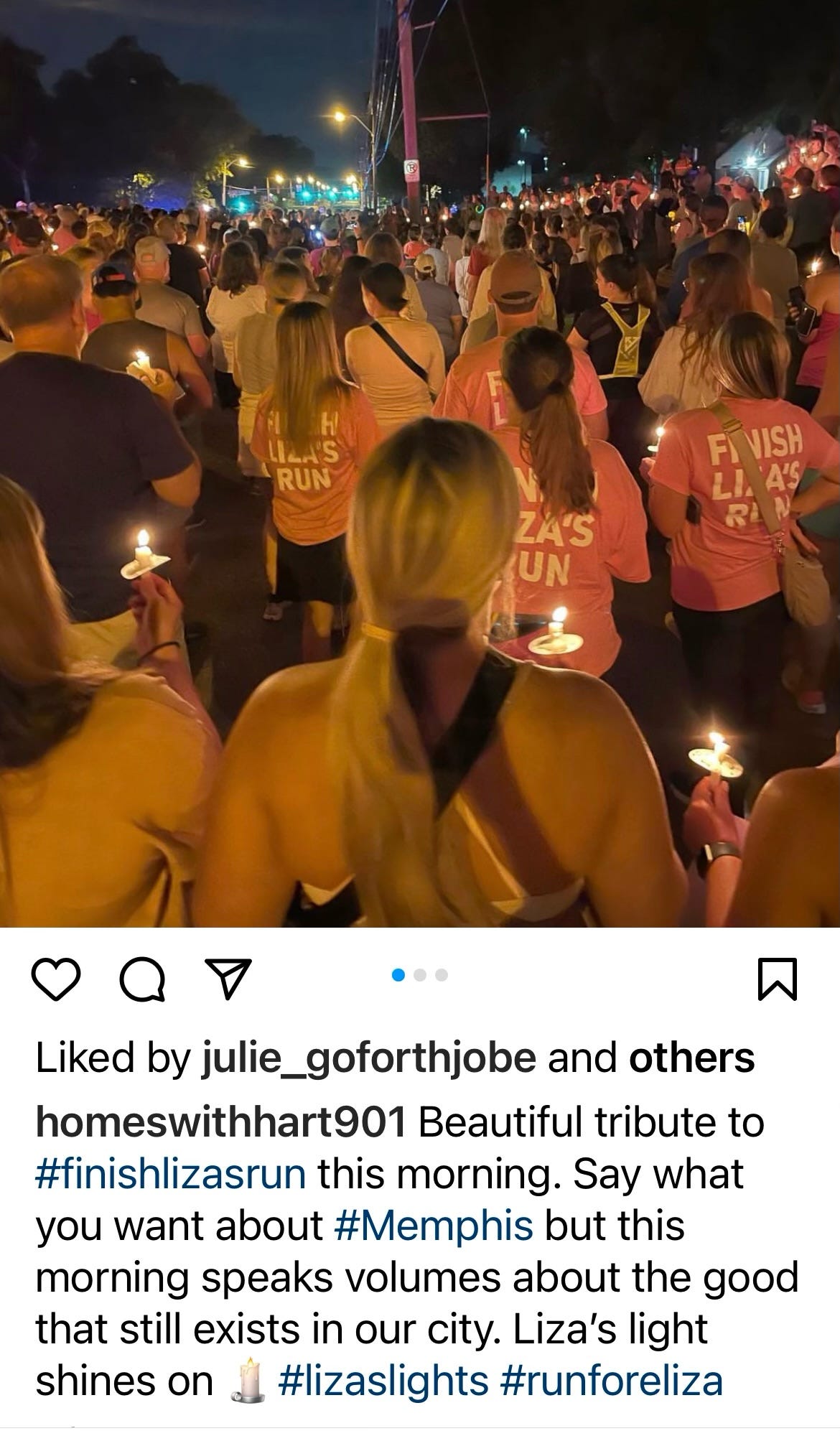
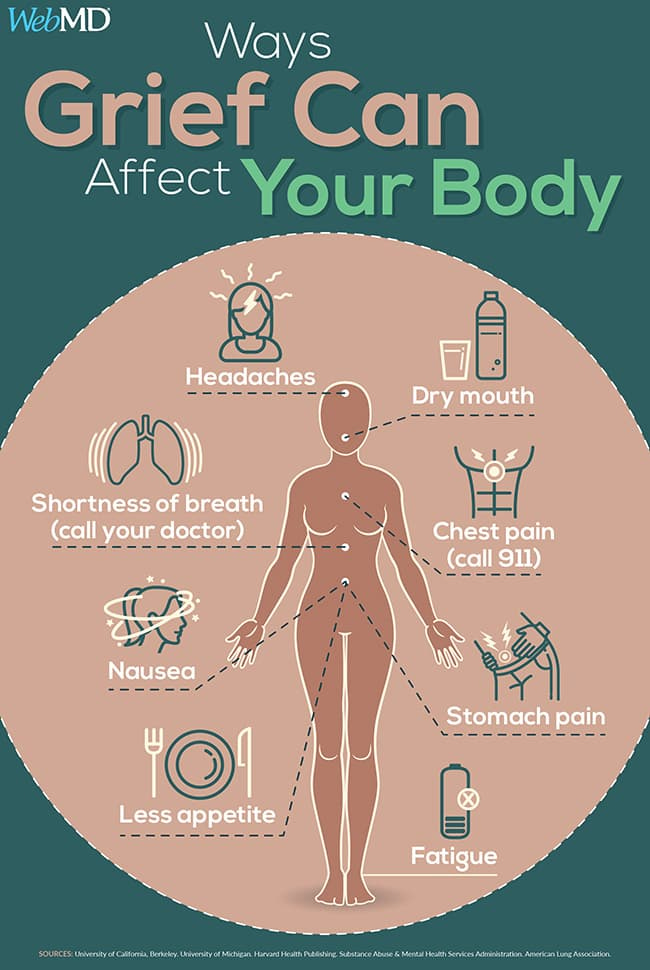
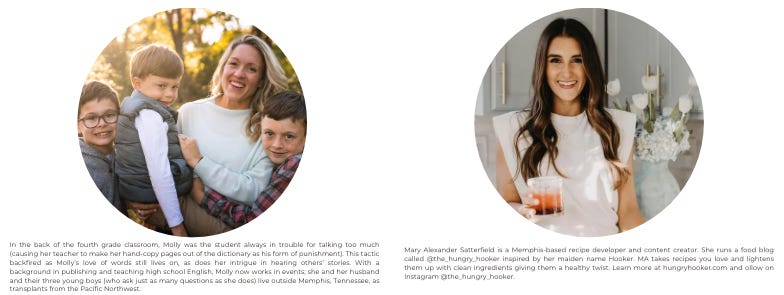
Thanks for sharing a strong tribute to Liza and all the women who just want to be able to run. Sending the Memphis community some extra love 💙